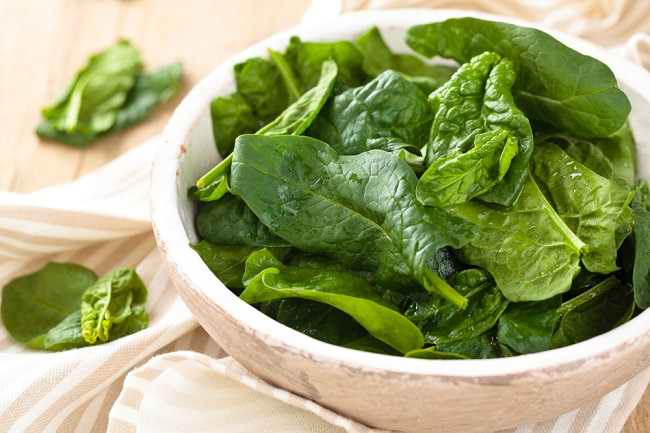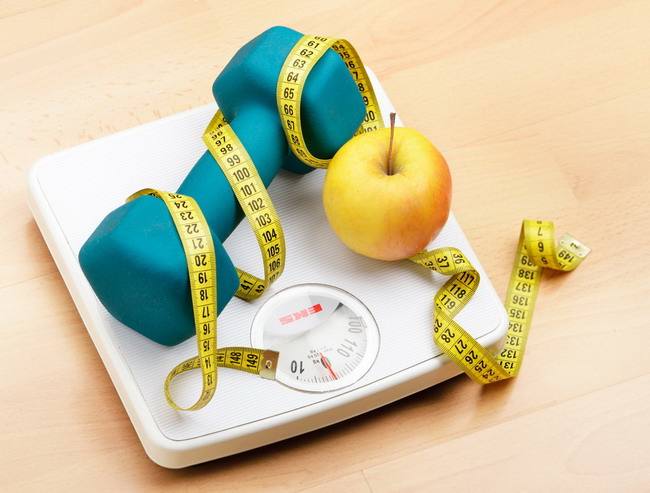There may be times when Busui finds that the milk that comes out is not smooth enough, thus making Busui worried if the amount of breast milk is not enough for the little one. To overcome these concerns, pregnant women can try several ways, one of which is by consuming foods that promote breast milk.
Breast milk is the main food for your baby in the first few years of life. This is because the nutrients contained in breast milk have been adapted to the needs of the little one to support growth and development and health conditions. Breast milk is also proven to protect your little one from various diseases.

Breast milk production works on the principle supply and demand. The process of natural milk production begins when the mother gets a stimulus in the form of a baby sucking on the nipple or when the mother's breast is expressed. Therefore, breastfeeding your little one regularly or often pumping breast milk can stimulate milk production by itself.
However, Busui's milk production may sometimes be stagnant and not smooth. This can happen for several reasons, such as stress, malnutrition, to the way of breastfeeding or improper attachment of the baby's mouth to the nipple.
When experiencing these obstacles, there are several ways to launch and increase breast milk production that Busui can try, for example by consuming breast milk smoothing foods.
Breastfeeding Smoothing Foods for Your Little One's Growth
During breastfeeding, Busui needs to consume about 500 calories more so that milk production remains smooth. This intake can be obtained by eating a balanced nutritious diet plus drinking enough water (about 8-10 glasses per day).
However, if Busui feels that breast milk production is not running smoothly, Busui can consume the following types of milk-stimulating foods:
1. Katuk leaves
Katuk leaf or Sauropus androgynus is one of the traditional breastfeeding food that has been used by the people of Indonesia for a long time.
Leaves that can be consumed raw or cooked contain lots of antioxidants, protein, fiber, as well as vitamins and minerals, such as B vitamins, vitamin C, potassium, iron, magnesium, manganese, phosphorus, and zinc.
Based on small research in the laboratory, consumption of katuk leaves seems to stimulate the hormones prolactin and oxytocin, which are hormones that play a role in the production and secretion of breast milk.
2. Moringa leaves
Moringa leaves (Moringa oleifera) is one of the plants that is believed to be able to launch breast milk. Moringa leaves contain vitamins, minerals, amino acids, and glycosides that nursing mothers need.
A study showed that consumption of Moringa leaf extract was seen to increase the amount of breast milk, although not significantly. Therefore, further research is needed to prove the effectiveness of Moringa leaves as a breast milk-stimulating food.
3. Centipede
Centipede or fenugreek is believed to be able to facilitate breast milk in nursing mothers because it contains substances that can stimulate the glands and ducts of breast milk to produce more milk. Fenugreek is usually available in capsule form which is taken as a supplement or in powder form.
4. Spinach
Spinach is a vegetable with a high iron content and is believed to increase breast milk production. In addition to spinach, foods that are also a source of iron are red meat (especially liver), beans, wheat, beans, fish, shellfish, and broccoli.
5. Ginger
Ginger contains several active substances that are thought to stimulate and expedite the production of breast milk. To use it as a breast milk booster, Busui can consume fresh ginger tea or eat foods that contain ginger as a spice.
In addition to some of the foods above, there are also other breast-feeding foods, namely garlic, almonds, fennel, and black cumin or Black Seed. However, the effectiveness of these breast-feeding foods so far still needs to be investigated further.
Foods to Increase Breast Milk Quality for Your Little One
The foods that Busui consumes while breastfeeding can affect the quality of breast milk for your little one. To improve the quality of breast milk, Busui can try several types of foods that contain the following nutrients:
DHA
DHA is one type of nutrient that is very important for the development of the baby's nervous system. These nutrients can be obtained from eggs, soybeans, and seafood, such as mackerel, mackerel, tuna, sardines, and shrimp.
However, for pregnant and lactating women, as well as women who are planning a pregnancy, you should not consume more than 12 ounces of seafood or the equivalent of 2 servings per week. This is to limit exposure to mercury found in seafood.
Vitamin D
Breastfeeding mothers need at least 600 - 2,000 IU of vitamin D per day, much higher than the needs of ordinary people who only need 400 IU per day.
To meet these nutritional needs, Busui is advised to regularly bask in the morning sun and eat foods containing vitamin D, such as milk, cheese, yogurt, eggs, and fish. If necessary, Busui can also take fish oil supplements to meet the needs of vitamin D during breastfeeding.
Vitamin C
Vitamin C is also important for improving the quality of breast milk. Breastfeeding mothers are recommended to consume at least 1000 mg of vitamin C per day so that the baby's vitamin C intake can be met through breast milk. Vitamin C is found in many fruits and vegetables, such as oranges, lemons, guavas, mangoes, chilies, tomatoes, spinach, and broccoli.
Vitamin A
Vitamin A contained in the food consumed by Busui can be absorbed by breast milk so that it can meet the needs of vitamin A in infants. Vitamin A can be obtained by eating carrots, sweet potatoes, spinach, and beef liver.
The need for vitamin A in nursing mothers is 850-1000 mcg per day. This amount is more than the needs of pregnant women, which is only about 800 mcg per day.
In addition to some of the nutrients above, pregnant women also need to meet other nutritional needs, such as carbohydrates, protein, healthy fats, folate, and iron, during pregnancy, so that the nutrients contained in breast milk are more complete.
To promote breastfeeding, pregnant women can also do breast massage gently, give warm compresses to the breasts, reduce stress, and express or pump breast milk at least every 3 hours to increase milk production. Pregnant women should also avoid consuming alcoholic beverages while breastfeeding.
If after doing some of the methods above, Busui still feels that your breast milk is not running smoothly, consult a lactation expert for further advice and appropriate treatment.









